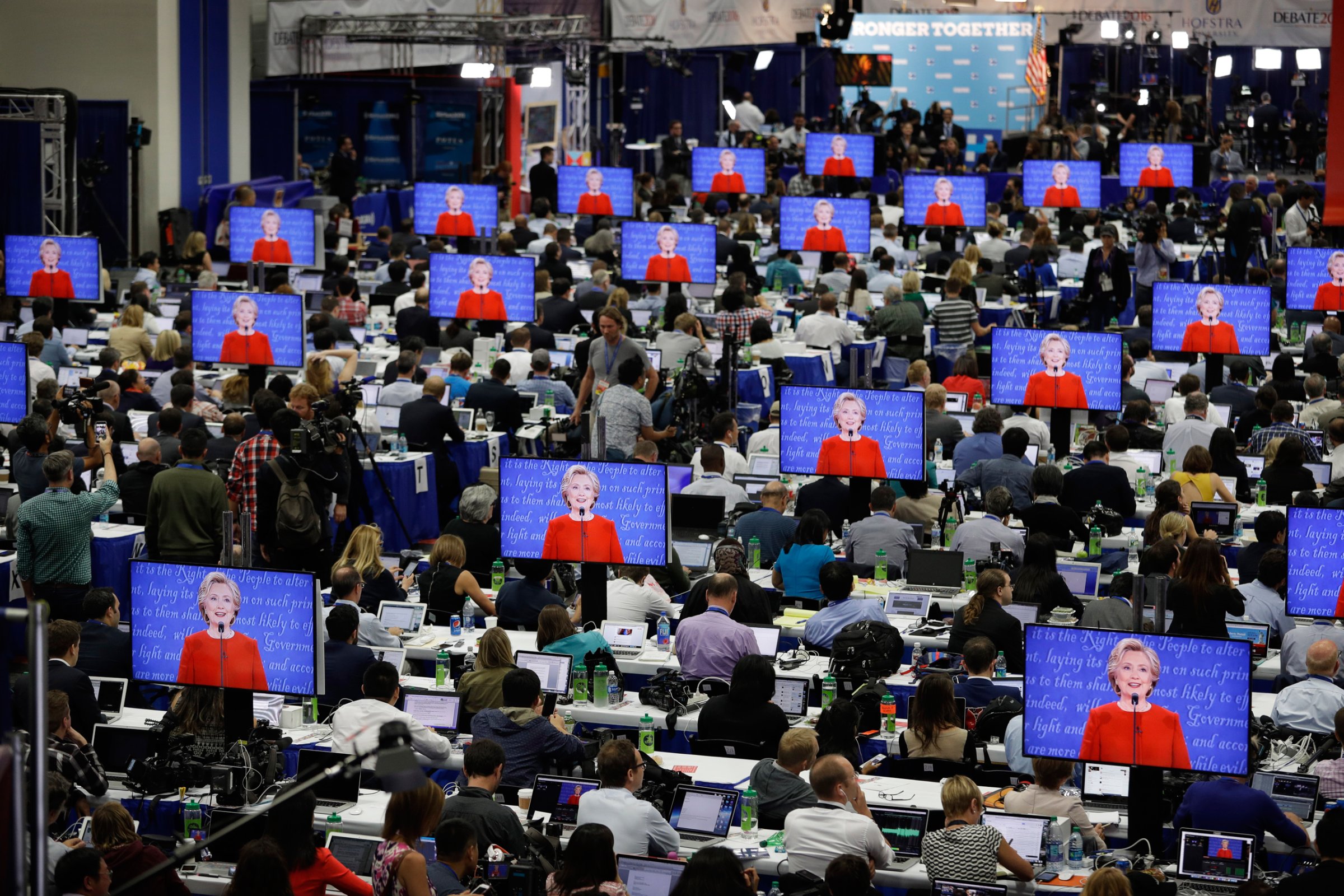
As the discussion on gender in the U.S. presidential election goes from bad to worse, I find myself asking: what are the real issues for women and girls? Strikingly, the only question about gender in the first presidential debate was about the gender of one of the candidates, rather than about the many issues facing women in America and around the world. It is also striking that the week following the debate was overtaken by the beauty pageant war—with Donald Trump attacking a former Miss Universe for her looks and weight and Hillary Clinton rightly shooting back that this that this type of overt sexism would not bode well for women if Trump wins.
Twenty years ago as a young woman in college, I considered myself a reluctant feminist. I hadn’t experienced the kinds of discrimination that my mother’s and grandmother’s generations had to contend with, and I found other issues more compelling. Then, in September 1995, I listened to then-First Lady Clinton deliver a powerful speech in Beijing. She talked about the dire problems of many women—at home and abroad—from domestic violence to bride burning to sexual slavery. It was the beginning of my senior year, and I still remember writing down and taping to my wall perhaps her most famous line: “human rights are women’s rights and women’s rights are human rights, once and for all.”
Her speech and her courage in delivering it—despite the pressure from members of the Chinese government hosting the major women’s rights conference where Clinton was speaking and from members of her own government—inspired many and was a galvanizing moment in the global women’s rights movement. I was one of those inspired to act. It opened my eyes to a whole range of important and urgent issues the women’s movement was facing. After I graduated that year, I set off to Central America to work on human rights issues, including the rights of women affected by domestic violence. I have not looked back. For the past two decades, I have worked on global education issues, especially helping girls develop the skills they need to live healthy, productive and happy lives.
Empowering girls’ and women through education helps the girls and women themselves, and it also helps their children, their families and their communities. When women are educated, their children are healthier and more educated, their families are more prosperous, and their communities are more resilient. In fact, one study found that if women’s education levels increased, deaths from natural disasters would be reduced by 60%, because as women are more empowered their role in helping others—getting to safety, sharing food, taking care of the sick—is amplified.
Who delivers the message—a woman or a man—is far less important than what the message is. Empowering girls and women is not about excluding boys and men but rather about finding a way for both sexes to share in progress together. Some of the strongest advocates for girls’ education whom I have encountered have been men, such as Khadim Hussain who fights for the rights of girls and disabled children to go to school in rural Pakistan. And some of the most vocal advocates for including boys and men are women, such as Judith-Ann Walker a long-time girls’ education activist who in Northern Nigeria has been engaging Boko Haram members in open conversations around what they want for their communities and lives.
We need a President who will fight for women’s rights. While it certainly would be historically significant for a women to be elected to the oval office, the focus should be less on the candidates’ own gender and more on their respective gender policies. We need a candidate with a strong track record and strong policies on issues that matter from equal pay for equal work to day care to testing rape kits—all important issues for women in America. In my field, global education, only one candidate, Secretary Clinton, is widely recognized as being a major player in the decades long effort to empower girls and women around the globe not only through her galvanizing speech in Beijing 20 years ago but through her legislative work as a Senator and her leadership on the issues as Secretary of State.
Women’s media organizations like Across Women’s Lives and The Fuller Project for International Reporting have launched a campaign #askaboutwomen to pressure media organizations to ask questions that better reflect women’s concerns, with videos like this. I hope in the second Presidential debate, the two candidates get a chance to talk about their respective positions on gender but this time as it relates to the many issues facing women in America and around the globe.
More Must-Reads From TIME
- The 100 Most Influential People of 2024
- Coco Gauff Is Playing for Herself Now
- Scenes From Pro-Palestinian Encampments Across U.S. Universities
- 6 Compliments That Land Every Time
- If You're Dating Right Now , You're Brave: Column
- The AI That Could Heal a Divided Internet
- Fallout Is a Brilliant Model for the Future of Video Game Adaptations
- Want Weekly Recs on What to Watch, Read, and More? Sign Up for Worth Your Time
Contact us at letters@time.com